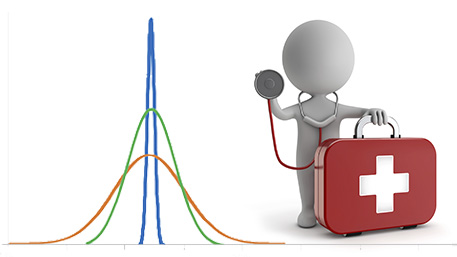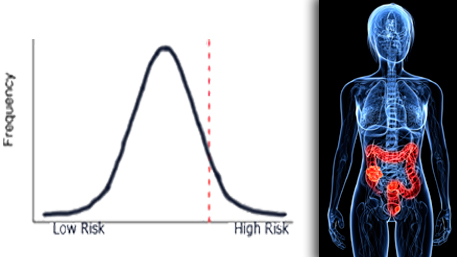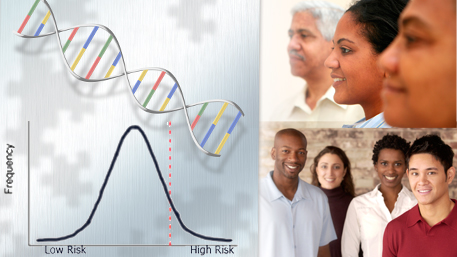Category: Polygenic Risk Scores
The Limits of Risk Prediction: Remembering Cecile Janssens

“The number of possible ‘causal’ [gene-environment] interactions is so enormous that every patient’s disease likely has its own complex and unique cause. This uniqueness limits predictive ability: it is impossible to accurately predict something that has never occurred before.” Cecile Janssens, DNA tells great stories—about the past, not future, WIRED, December 5, 2013 Risk prediction Read More >
Posted on by 5 CommentsFrom Polygenic Risk Scores to Methylation Risk Scores: What are the Clinical Applications?

A recent study used methylation risk scores to improve predictive value of baseline models for a range of clinical diagnoses and laboratory tests. The ability to understand and predict a person’s risk of disease is an integral component of precision medicine and precision public health. Many factors, including environmental and genetic, contribute to a person’s Read More >
Posted on byPolygenic Risk Scores in Clinical Practice? Still Making the Case

Two recent systematic reviews show the lack of data on clinical utility of polygenic risk scores and major challenges in implementation. The Promise of Polygenic Risk Scores in Population Health Many common diseases such as cancer, diabetes, and heart disease, result from the combination of genetic factors and physical and social environmental factors. Genome-wide association Read More >
Posted on byApplications of Polygenic Risk Scores to Population Health: Where Are We?

An international multidisciplinary group of experts in genetics, law, ethics, behavioral sciences, and other fields reviews the state of science on polygenic scores and highlights risks and gaps before widespread use in practice. Polygenic risk scores (PRS) combine the small effects of many genes across the human genome to estimate the risk of a disease Read More >
Posted on byShould polygenic risk scores be used in risk-stratified colorectal cancer screening?

Polygenic risk scores (PRS) summarize information about a person’s disease risk based on numerous DNA variants in their genome. Each variant confers very little increase in disease risk. But composite (or polygenic) risk scores made up of a number of such variants have been shown to stratify people to normal distributions of disease risks for Read More >
Posted on byThe use of polygenic risk scores in clinical practice can exacerbate health disparities in ethnic and minority populations

This blog is a summary of our recent commentary on polygenic risk scores (PRS). PRS provide a rapidly emerging example of precision medicine and are based on multiple gene variants that each have weak associations with disease risks, but collectively may enhance disease predictive value in the population. The added value of PRS is unclear Read More >
Posted on by 1 CommentIs it Time to Integrate Polygenic Risk Scores into Clinical Practice? Let’s Do the Science First and Follow the Evidence Wherever it Takes Us!

In case you have not been paying much attention to genomic medicine research or social media coverage, you might have missed a clear uptick in the past couple of years on the value of polygenic risk scores in clinical practice and population screening. (see examples here, here, here, and here) Polygenic risk scores (PRS) summarize Read More >
Posted on by 1 CommentResearch on the Behavioral Impact of Polygenic Risk Scores: The Train Has Already Left the Station!

There has been a lot of discussion recently about the new generation of polygenic risk scores (information about a person’s disease risk based on many dozens, hundreds, thousands, or even millions of common DNA variants in their genome), and whether these new-and-improved genetic risk scores are going to turn out to be useful for disease Read More >
Posted on by

